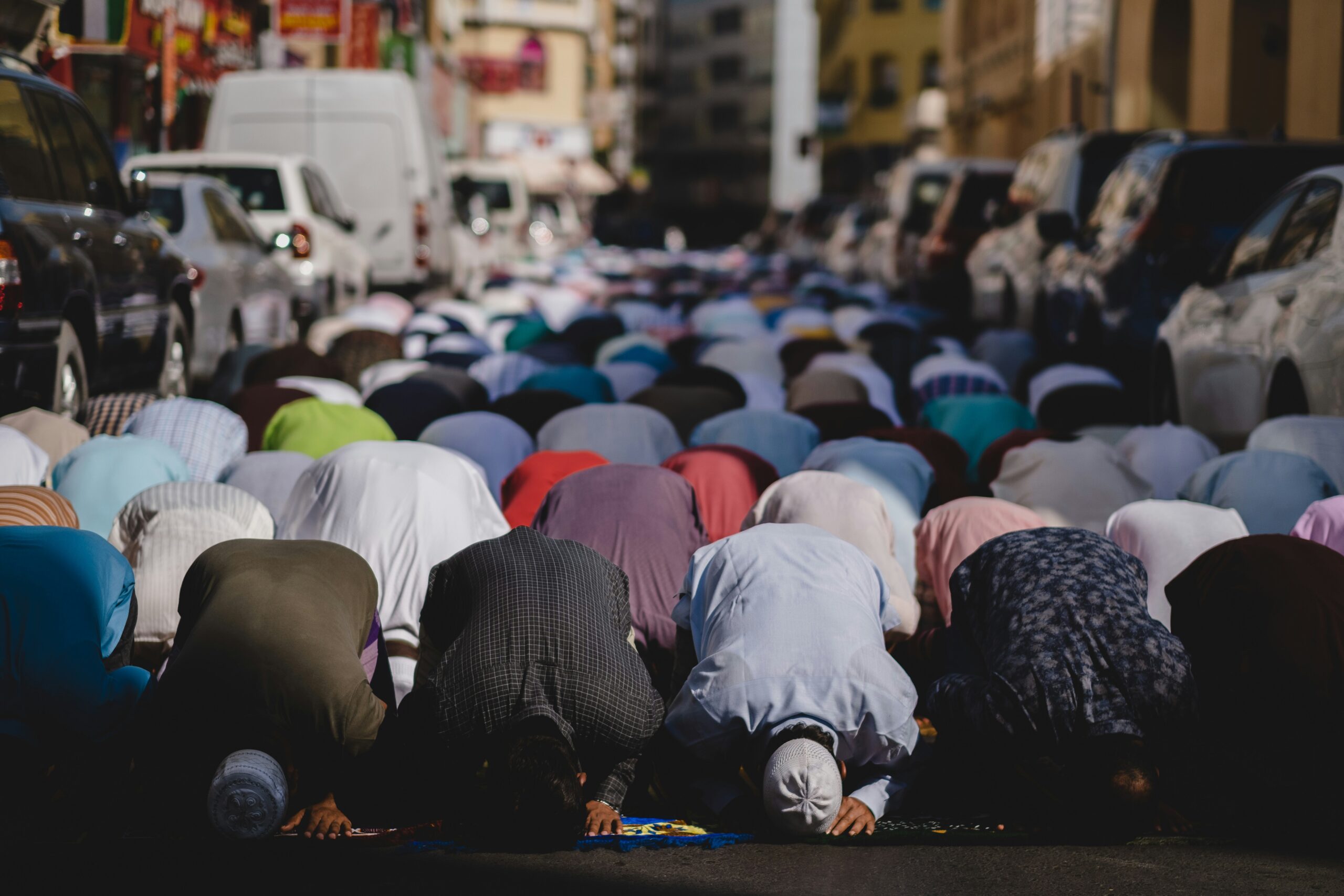
Can we stand as a Ummah in the present World?
We often hear from the maulvis and intellect class of our country that world politics has changed drastically, and talking about Nizam-e-Deen may be impossible in the present scenario. They build their argument on the basis of the social, political, and economic systems of the present world, rooted in the concepts of nationalism initiated in the late 18th century. According to which the countries bounded by the geographical territories should govern itself without the interference from the outside.
Moreover, the countries are also bound by International laws articulated by organizations such as United Nations (UN), ensuring peace and security worldwide. Similarly, in order to reach the monetary international standards, the developing countries are forced to take loans from other countries or organizations that further worsen their condition by pushing them into debts. Furthermore, the democratic system of electing the leader of a nation based on the inhabitants’ vote rather than the core capabilities required for being an effective leader adds to the bitterness of the present world political system. Not to our surprise, based on these arguments, they draw the conclusion of keeping deen and Duniya, on a separate pedestal, reflects another concept of secularism introduced in the 18th century. In this way, the one-liner received from them is, “we cannot stand as an ummah in the present world.”

Who created these standards?
The first and the foremost question that arise in one’s mind is that “who created these standards”? If we look back into the pages of history, we come across the conclusion that these concepts were introduced and implemented in the age of revolution (late 18th to mid-19th centuries), resulting in the abolishment of monarchy in America and Europe, introducing representative governments (democracy). Whereas, in the Islamic world the Mirza Fathʿali Ahundzade of Iran from the 19th century stand amongst the forerunners in introducing the concepts of secularism, nationalism and constitutionalism in Persia. Pakistan being an oppressed nation couldn’t stand on its feet from the day first of its freedom from the British government. A country conceived in the name of Islam was unable to constitute its own rules and regulations; rather, it had to follow the play cards left by the British government in the form of judiciary, politics, and bureaucracy. Although some efforts were made by General M.Zia ul Haq in the mid-1970s by introducing Shariah law, emphasizing the implementation of the zakat and punishment systems in accordance with Islamic laws. However, the Pakistani nation opposed most of the legislation presented in it. Even though the Shariah law was backed by renowned Islamic scholars like Maulana Abu Ala Moududi RA, the state couldn’t enforce the legislation in its true spirit.
The event of nine-eleven fixed the last nail in the coffin of the Islamic concept of Ummah, as the Muslims were targeted openly by the international community. They not only tagged them with the label of extremists but also started working on the introduction of modern Islam in the Muslim communities. To introduce this concept, the unfair and biased use of media, literature, and other means of communication was stimulated, which showed the two faces of Islam, that is, traditional/conventional vs modern Islam. As a result, the core concepts of Islam, like jihad, were defined as terrorism if pursued by the Muslims, although for the non-Muslims, it was called as the war for freedom. Hence the Muslims lost their identity due to the misleading information circulated by the international organizations.
Why this happened?
Unfortunately, we ourselves stand behind our destruction. There are many reasons for this, the most important being the lack of knowledge about our Deen. Our deficiencies push us towards wrong interpretations of Islamic laws and indulge us in searching for ideals other than our Islamic heroes. The crucial role of Islamic scholars in depicting the true picture of Islam cannot be overlooked. It is they who are considered to be the flag bearers of Islam, and they are held responsible for it. Hence both the nation itself and the Islamic sector of the country pushed us into denial. Islamic history is full of stories relating to the misguidance of Muslims that resulted from the distancing of the Ummah from the teachings of Al-Quran.
Double Standards: If they can, why not us?
So, in the present times, world politics has greatly changed. This is what we hear from the same intellects and Maulvis. Keeping the above points in mind, I asked them what the USA, Russia, and Israel are doing in the form of military operations in different countries. Why are they executing these ruthless operations, depriving the people of the basic need to live peaceful and prosperous lives? Is it only mandatory for Muslim countries to follow international laws and human rights protection? Doesn’t it put a big question mark on the UN rules, which are applicable to certain regions of the world, and the rest may astray from them? The recent and most disturbing example is the Israeli invasion of Palestine. Doesn’t this reflect the double standards of the international community?
The way out
We must remember that the camel going to seek horns lost his ears and emphasized the basic concepts of a Ummah, which brings all the Muslim communities under one umbrella (Khalifa). The umbrella not only defines the sovereignty of Allah Izo Wajjal but also guides us to the right path through the teachings of Al-Quran and Sunnah. As rightly mentioned by Maulana Maududi RA: “Islam is not a ‘religion’ in the sense this term is commonly understood. It is a system encompassing all fields of living. Islam means politics, economics, legislation, science, humanism, health, psychology and sociology. It is a system that makes no discrimination on the basis of race, color, language or other external categories. Its appeal is to all mankind. It wants to reach the heart of every human being.”
So, yes, we can stand as a Ummah in the present world.

обустройство заезда на участок .
banzaibet ro’yxatdan o’tish bonusi banzaibet ro’yxatdan o’tish bonusi
I don’t think we can stand as Ummah in this present world; we are way too comfy for that.
Yes we can, but we need patience this will be a gradual process.
truly explained why we are not able to stand as an ummah but how we can stand as an ummah ?
as mentioned by allama iqbal ” na ho naa umeed naa umeedi zawal o ilm e irfan hay” so a muslim can’t lose hope , we as a ummah has hope that one day we will stand as a ummah in sha allah.
as mentioned by iqbal ” hay ahle siyasat k wahi kohno khamm o paich , shayir isi aflaas e takhayyul may hay giriftaar , dunya ko hay us mehdi e barhaq ki zarurat ho jis ki nigah zal zala e aalam e afkaar “
In my opinion, a worldwide ummah concept is biting off more than we can chew….We truly need is to lay the groundwork through the academic revolutions that helped first-world countries find their feet. More than anything, human rights awareness must be drilled into our bones—not the so-called secular rights, but the true value of human life explained in Quran and ahadees. As an Ummah, we are still in the dark about our own potential; weighed down by a chip on our shoulder and tangled in our own web, we are far from taking the reins on the world stage without human rights knowledge.
Yes. As ALLAH says in Quran, if you are not committed to your religion i have authority to replace you with other nation who will work on AMAL BIL MAROOF.
Yes definitely we can but faith,unity and decipline is required